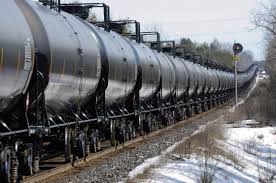
The Antimonopoly Committee of Ukraine has permitted DTEK Oil & Gas to acquire controlling stakes in Kyivoblenergo and Odesaoblenergo belonged to VS Energy Group, the press service of the committee has reported, referring to the decision made on Thursday.
“Today the Antimonopoly Committee of Ukraine granted permission to DTEK Oil & Gas to acquire shares of Kyivoblenergo and Odesaoblenergo under the strict condition of fulfilling obligations that neutralize the possible negative impact on electricity markets,” the committee said.
In the beginning of 2019, DTEK announced its intention to build up 68.2949% of the shares in Odesaoblenergo and 93.9978% in Kyivoblenergo owned by the VS Energy Group. Oil and gas companies of DTEK Oil & Gas Group (Ukraine) and NGR B.V. (the Netherlands) on January 3, 2019 entered into contracts for the sale of shares in these companies.

The National Bank of Ukraine (NBU) has improved the forecast for forex reserves as of late 2019 from $20.6 billion to $21.2 billion, from $21.4 billion to $21.9 billion as of late 2020 and from $21.4 billion to $21.8 billion as of late 2021. According to data released by the central bank on Thursday, the assessment of the deficit in the consolidated balance of payments for 2019 has also been improved from $1.1 billion to $0.3 billion, while for 2020-2021 it is confirmed at the level of $0.1 billion and $0.7 billion respectively.
At the same time, the NBU worsened the forecast of the current account deficit: for the current year – from $4.5 billion to $4.9 billion, for the next year – from $5.6 billion to $5.8 billion, and for 2021 – from $6.2 billion to $6.7 billion
In relation to GDP, the assessment of the current account deficit for 2019 is worsened from 3.1% of GDP to 3.3% of GDP, for 2020 it is confirmed at the level of 3.6% of GDP, and for 2021 it is worsened from 3.9% of GDP to 4% Of GDP.
As reported, at the end of 2018, Ukraine had forex reserves of $20.8 billion, a surplus of the consolidated balance of payments of $2.9 billion and a current account deficit of $4.5 billion or 3.4% of GDP.

Head of the European Union Delegation to Ukraine Hugues Mingarelli has said he doesn’t see any threats to the visa-free regime between Ukraine and the EU.
Mingarelli said that he didn’t see any threats, but Ukraine must adhere to its obligations. He said about this at the event of the European business association “New 5 year challenge: Expectations. Hopes. Concerns” on Thursday in response to a question whether he sees any threats to the visa-free regime between Ukraine and the EU.

Volodymyr Zelensky has won 73.22% of the vote and Petro Poroshenko has received 24.45% of the vote, Ukraine’s Central Election Commission (CEC) said, after counting 100% of the ballot papers cast in the April 21 second round of the presidential election.
Ukrainians expect from a new president in the first 100 days of his activity a price lowering in utility tariffs, the submission to parliament of bills on lifting immunity from deputies, judges and the president, as well as the start or acceleration of investigations into the most resonant corruption crimes.
The Ministry of Economic Development and Trade has worsened the forecast for the growth of Ukraine’s real gross domestic product (GDP) in 2019 to 2.8% from 3%. The World Bank has worsened the forecast for the growth of Ukraine’s gross domestic product (GDP) in 2019 to 2.7% from 2.9%, according to the April review of the World Bank “Europe and Central Asia Economic Update, Spring 2019: Financial Inclusion.”
The growth of Ukraine’s real GDP in 2019 will slow down to 2.5%, but as the level of political uncertainty decreases by 2020, economic growth will resume to 3%, according to the macroeconomic forecast of HSBC.
Ukraine’s GDP growth in 2019 will slow down from 3.3% last year to 2.7% this year and 2.6% next year with the hryvnia exchange rate weakening to UAH 30.5 per $1 by the end of 2019 and UAH 31.5/$1 by the end of 2020, Morgan Stanley bank predicts.
The International Monetary Fund (IMF) uses the average annual forex rate set at UAH 28.681 per U.S. dollar for 2019 and UAH 29.958 per U.S. dollar for 2020 when converting GDP in hryvnias to U.S. dollars in its updated April 2019 World Economic Outlook, which is almost the same as in the previous outlook issued last October.
The European Bank for Reconstruction and Development (EBRD) plans in 2019 to increase the volume of investment in the Ukrainian economy to $1 billion, head of the Ukrainian office of the EBRD Marina Petrov has stated.
The deficit of Ukraine’s foreign trade in goods in January and February 2019 grew by 4.5% compared with January and February 2018, to $760 million, the State Statistics Service said.
Inflation in Ukraine in March 2019 was 0.9% compared to 0.5% in February and 1% in January, the State Statistics Service of Ukraine has reported.
The deficit of the national budget of Ukraine in January-March 2019 amounted to UAH 26.166 billion, in particular the general fund deficit was UAH 39.272 billion with the target being UAH 43.54 billion, according to data released by the State Treasury Service.
The deficit of the national budget of Ukraine in the first quarter of 2019 was UAH 25.3 billion with the approved annual figure of UAH 90 billion, such preliminary data of the State Treasury Service were voiced by the Ministry of Finance.
The aggregate state (direct) and state-guaranteed debt of Ukraine in March 2019 increased by 0.7%, or by $0.54 billion compared with February 2019, to $78.78 billion, according to the website of the Ministry of Finance.
Ukraine’s state (direct) debt in January-March 2019 fell by 0.05% or UAH 0.9 billion, to UAH 1.859 trillion, the Finance Ministry of Ukraine has reported on its Facebook page.
Industrial prices in Ukraine in March decreased by 1% after rising by 1% in February and January, the State Statistics Service has said.
Industrial production in Ukraine in March 2019 increased by 2.1% compared with March 2018, which is better than the figures in January and February, when a decline was recorded, the State Statistics Service has reported.
The transport companies of Ukraine in January-March 2019 reduced passenger traffic by 6% compared with January-March 2018, to 1.061 billion people, the State Statistics Service has reported. Transport enterprises of Ukraine in January-March 2019 increased cargo transportation by 8.9% compared to January-March 2018, to 163.3 million tonnes.
The volume of construction work performed in Ukraine in March 2019 increased by 29.7% compared with March 2018, while the indicator in February 2019 compared with February 2018 grew by 19.4%, according to statistics.
Retail trade turnover in Ukraine in comparable prices in January-March 2019 increased by 7.4% compared to January-March 2018, to UAH 235.804 billion the State Statistics Service has reported.

Belarus will raise duties on oil and oil products exported outside the Eurasian Economic Union’s customs territory on May 1. The sizes of the duties were confirmed by Government Resolution No. 262 of April 25, which has been published on the National Legal Internet Portal. Under the document, the duty on crude oil will grow from $97.40 to $104.60 per tonne, that on straight-run gasoline will rise from $53.50 to $57.50 per tonne, and that on commercial gasoline will grow from $29.20 to $31.30 per tonne.
The duty on light and medium distillates will rise from $29.20 to $31.30 per tonne. The same rate will apply to diesel, benzene, toluene, xylol, and lubricants and other oils.
Belarus last raised export duties on oil and oil products on April 1. Belarus has been aligning its export duties on oil and oil products with Russia’s since 2010 in light of its duty-free imports of oil from Russia. In accordance with EAEU agreements, all export duties on oil and oil products have remained in the Belarusian budget since 2015.